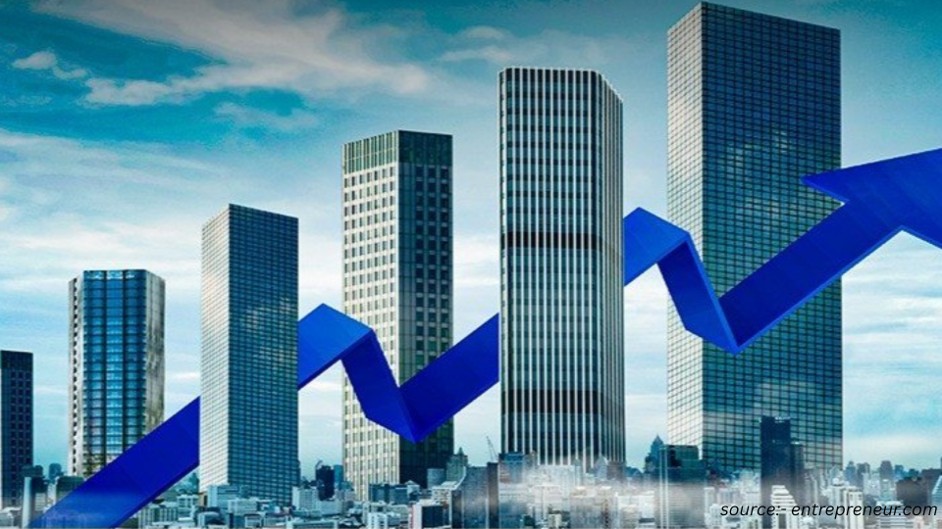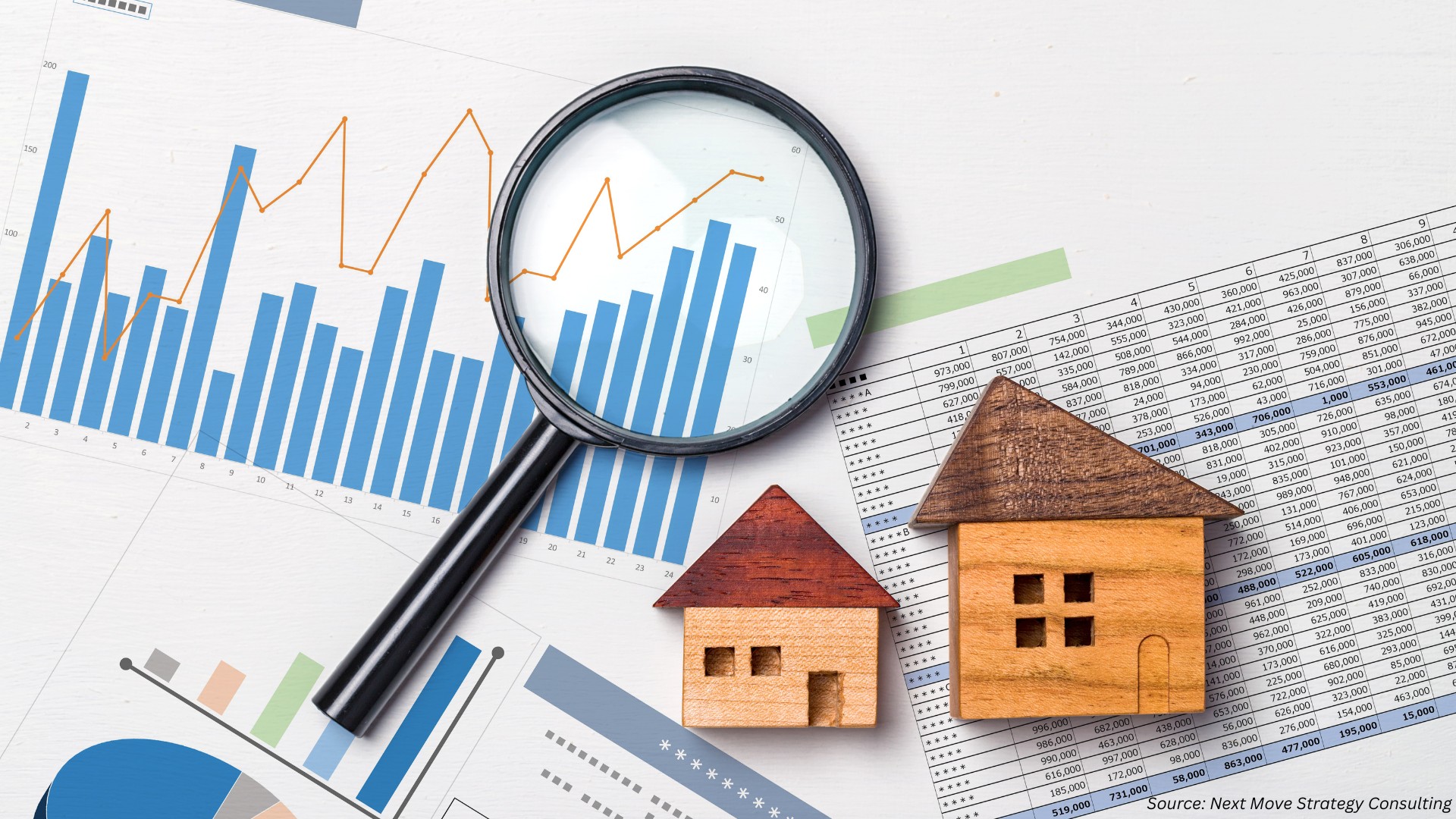Top 5 Real Estate Trends Redefining Global Property Value
Published: 2025-11-26

The real estate market encompasses the buying, selling, leasing, and development of land and property, including residential, commercial, industrial, and mixed-use spaces. It serves as a cornerstone of economic growth, reflecting the balance between population dynamics, urbanization, investment trends, and infrastructure development. Beyond its traditional focus on physical assets, today’s real estate market is increasingly shaped by technological innovation, sustainability goals, and changing lifestyle patterns. These forces are transforming how properties are designed, built, managed, and valued, making real estate not just an asset class, but a key driver of modern urban and economic transformation.
Smart and Connected Buildings
In today’s real estate market, the integration of IoT sensors, smart energy-management systems, and real-time monitoring is revolutionising how buildings operate and perform. These intelligent technologies enable property owners to seamlessly track occupancy patterns, regulate HVAC and lighting systems, and optimise energy consumption in real time—driving substantial reductions in operating costs while enhancing tenant comfort and satisfaction. As sustainability and efficiency become central to investment decisions, assets equipped with such digital intelligence are commanding premium valuations. Both occupiers and investors are increasingly gravitating toward these connected, data-driven properties that promise not only operational excellence but also long-term resilience and future readiness in an evolving real estate landscape.
Curious about the Real Estate Market? Grab a FREE Sample Now
Net-Zero and Low-Carbon Designs
Across the global real estate market, a growing wave of new developments and large-scale retrofits is pursuing net-zero or near net-zero energy performance through the integration of renewable energy systems, advanced insulation materials, and intelligent building management technologies. This shift marks a fundamental redefinition of what constitutes a premium property, where sustainability, resilience, and efficiency drive value as much as location or design. Green-certified and energy-efficient buildings are rapidly becoming the benchmark in major urban centres, as developers and investors recognize their advantages in regulatory compliance, risk reduction, and long-term asset appreciation. As environmental performance becomes a key determinant of market competitiveness, sustainable real estate is emerging as a cornerstone of future-proof investment strategy.
Sustainable Materials & Circular Economy Practices
The adoption of low-carbon construction materials such as mass timber, recycled steel, and reclaimed composites is rapidly transforming the real estate development landscape. Paired with innovative design principles like disassembly and material reuse, this shift is redefining how sustainability is embedded throughout the building lifecycle. In the market, these practices are not only reducing embodied carbon but also enabling developers and investors to stand out through demonstrable environmental responsibility and forward-thinking design. Projects that integrate circular construction methods are increasingly viewed as premium assets, aligning with evolving tenant expectations, ESG mandates, and investor demand for greener portfolios ultimately driving long-term value and resilience in the global real estate market.
ESG-Driven Tenant Demand & Certification Premiums
In today’s real estate landscape, tenants, especially within the commercial segment are increasingly prioritizing sustainability credentials, wellness-oriented design, and internationally recognized green certifications such as LEED, WELL, and IGBC. This growing tenant awareness is transforming the competitive dynamics of the market, as ESG-aligned buildings are becoming the preferred choice for high-value occupiers and multinational corporations seeking to meet their own sustainability goals. From a market perspective, assets that embody these green and wellness standards consistently outperform conventional properties by commanding premium rents, reducing vacancy risks, and demonstrating stronger long-term value retention. As institutional investors and developers align with this demand, sustainability has evolved from a “nice-to-have” feature to a core determinant of market success and investment resilience.
Retrofit & Adaptive-Reuse of Existing Assets
Rather than concentrating solely on new developments, the real estate market is witnessing a strong shift toward transforming aging or underutilized properties into high-performance, sustainable assets through large-scale retrofits and adaptive reuse. Developers are modernizing existing commercial and residential spaces with advanced materials like cross-laminated timber, integrated smart systems, and green certifications to meet modern efficiency standards and ESG goals. In the broader market landscape, this transformation is redefining value creation, unlocking new investment potential in mature urban centers, revitalizing older stock, and expanding the pool of investible green assets. By breathing new life into existing infrastructure, this approach not only curbs carbon emissions but also strengthens long-term portfolio resilience and market competitiveness.
Looking Ahead: The Future of Real Estate Market
The global real estate market is entering a transformative era defined by sustainability, digitalization, and adaptive urban growth. As cities expand and infrastructure evolves, the integration of smart technologies, green building practices, and data-driven management is reshaping how properties are designed, constructed, and operated. Emerging trends such as smart buildings, AI-powered analytics, IoT-enabled asset monitoring, and the widespread adoption of ESG frameworks are driving efficiency, transparency, and long-term value creation across the sector.
Looking ahead, the market is expected to witness accelerated growth as governments and developers prioritize low-carbon construction, resilient urban planning, and the digital transformation of property management. Advances in proptech, renewable integration, and intelligent design will redefine asset performance, tenant experience, and investment returns. Moreover, public-private partnerships and regulatory incentives will continue to steer capital toward sustainable, inclusive, and future-ready developments.
Ultimately, the real estate market is set to evolve into a more connected, sustainable, and technology-driven ecosystem, where innovation and environmental responsibility converge to create smarter cities, more livable communities, and resilient investments that shape the next generation of global real estate growth.
About the Author
 Bidhudhyoti Nag is a dedicated market researcher with a deep understanding of diverse industry domains, including healthcare, construction & manufacturing, as well as automotive & transportation. His analytical mindset and keen eye for emerging trends enable him to uncover valuable insights that contribute to strategic decision-making and thought leadership. Passionate about writing, he considers blogging a powerful medium to share perspectives, research findings, and in-depth analyses with a broader audience. Outside work, he enjoys sports, traveling, and exploring diverse cultures that enrich his global outlook.
Bidhudhyoti Nag is a dedicated market researcher with a deep understanding of diverse industry domains, including healthcare, construction & manufacturing, as well as automotive & transportation. His analytical mindset and keen eye for emerging trends enable him to uncover valuable insights that contribute to strategic decision-making and thought leadership. Passionate about writing, he considers blogging a powerful medium to share perspectives, research findings, and in-depth analyses with a broader audience. Outside work, he enjoys sports, traveling, and exploring diverse cultures that enrich his global outlook.
About the Reviewer
 Sikha Haritwal is a researcher with more than 5 years of experience. She has been keeping a close eye on several industry verticals, including construction manufacturing, personal care products, and consumer electronics. She has avid interest in writing news articles and hopes to use blog as a platform to share her knowledge with others.
Sikha Haritwal is a researcher with more than 5 years of experience. She has been keeping a close eye on several industry verticals, including construction manufacturing, personal care products, and consumer electronics. She has avid interest in writing news articles and hopes to use blog as a platform to share her knowledge with others.















Add Comment